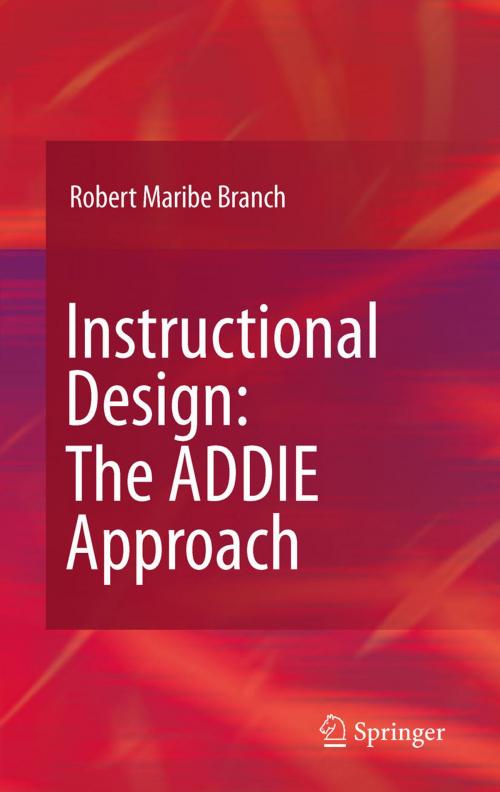Instructional Design: The ADDIE Approach
Nonfiction, Reference & Language, Education & Teaching, Teaching, Computers & Technology, Educational Theory, Educational Psychology| Author: | Robert Maribe Branch | ISBN: | 9780387095066 |
| Publisher: | Springer US | Publication: | September 23, 2009 |
| Imprint: | Springer | Language: | English |
| Author: | Robert Maribe Branch |
| ISBN: | 9780387095066 |
| Publisher: | Springer US |
| Publication: | September 23, 2009 |
| Imprint: | Springer |
| Language: | English |
The Analyze, Design, Develop, Implement, and Evaluate (ADDIE) process is used to introduce an approach to instruction design that has a proven record of success. Instructional Design: The ADDIE Approach is intended to serve as an overview of the ADDIE concept. The primary rationale for this book is to respond to the need for an instruction design primer that addresses the current proliferation of complex educational development models, particularly non-traditional approaches to learning, multimedia development and online learning environments.
Many entry level instructional designers and students enrolled in related academic programs indicate they are better prepared to accomplish the challenging work of creating effective training and education materials after they have a thorough understanding of the ADDIE principles. However, a survey of instructional development applications indicate that the overwhelming majority of instructional design models are based on ADDIE, often do not present the ADDIE origins as part of their content, and are poorly applied by people unfamiliar with the ADDIE paradigm.
The purpose of this book is to focus on fundamental ADDIE principles, written with a minimum of professional jargon. This is not an attempt to debate scholars or other educational professionals on the finer points of instructional design, however, the book's content is based on sound doctrine and supported by valid empirical research. The only bias toward the topic is that generic terms will be used as often as possible in order to make it easy for the reader to apply the concepts in the book to other specific situations.
The Analyze, Design, Develop, Implement, and Evaluate (ADDIE) process is used to introduce an approach to instruction design that has a proven record of success. Instructional Design: The ADDIE Approach is intended to serve as an overview of the ADDIE concept. The primary rationale for this book is to respond to the need for an instruction design primer that addresses the current proliferation of complex educational development models, particularly non-traditional approaches to learning, multimedia development and online learning environments.
Many entry level instructional designers and students enrolled in related academic programs indicate they are better prepared to accomplish the challenging work of creating effective training and education materials after they have a thorough understanding of the ADDIE principles. However, a survey of instructional development applications indicate that the overwhelming majority of instructional design models are based on ADDIE, often do not present the ADDIE origins as part of their content, and are poorly applied by people unfamiliar with the ADDIE paradigm.
The purpose of this book is to focus on fundamental ADDIE principles, written with a minimum of professional jargon. This is not an attempt to debate scholars or other educational professionals on the finer points of instructional design, however, the book's content is based on sound doctrine and supported by valid empirical research. The only bias toward the topic is that generic terms will be used as often as possible in order to make it easy for the reader to apply the concepts in the book to other specific situations.















